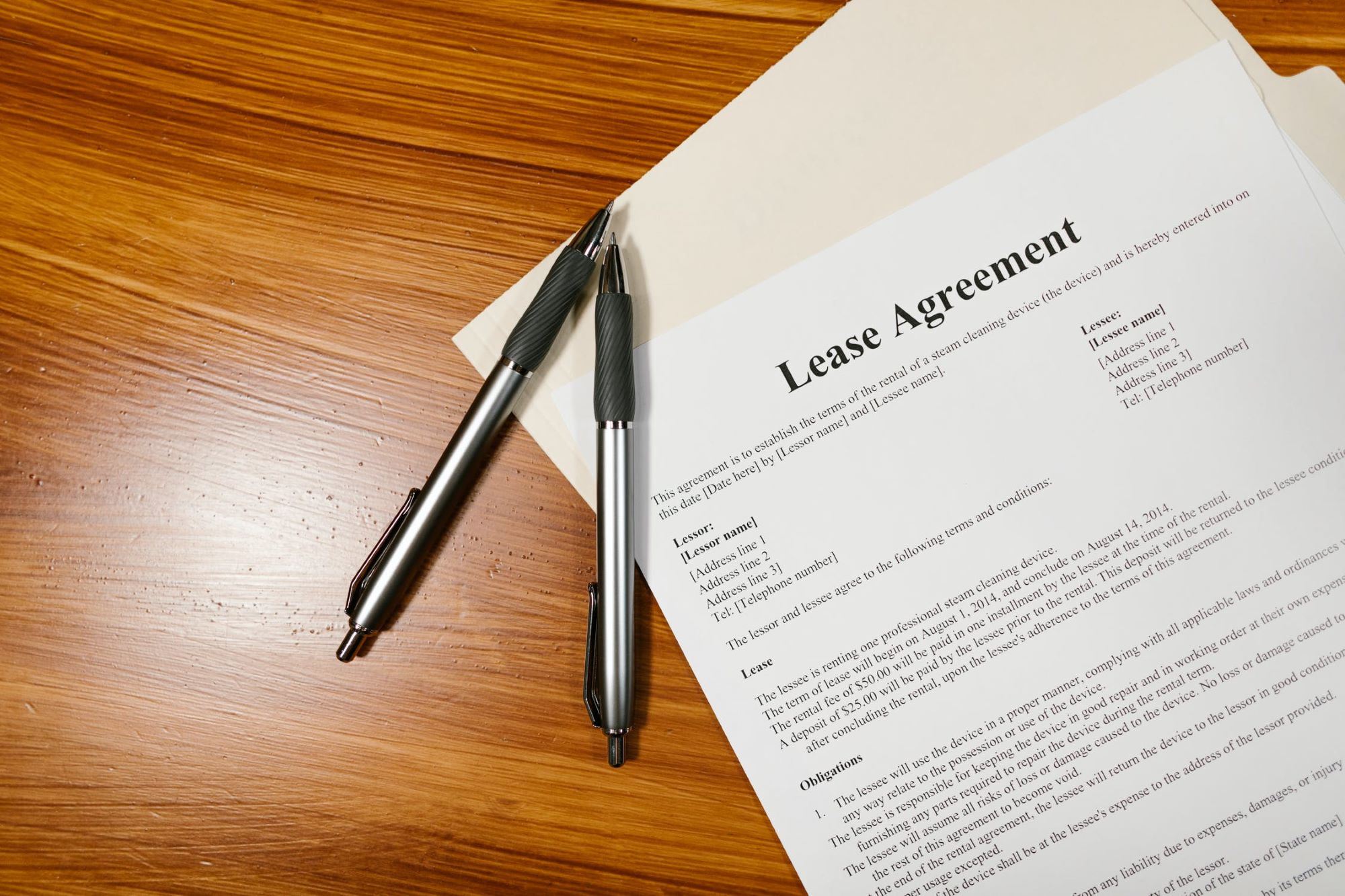Are you renting a property and wondering if your landlord can break the lease early? The truth is, the answer to this question varies.
Thank you for reading this post, don't forget to subscribe!A landlord can break a lease early for a number of reasons. If they do, the tenant can either accept it or try to get out of it with compensation. The landlord can only legally break the lease if there is an acceptable reason and if the tenant agrees to give up their tenancy rights.
In this blog post, we will discuss what can cause a landlord to break a lease agreement early, how tenants can respond in these situations, what their rights are in these cases and why short-term rentals can be a good option.
Reasons a landlord can break a lease
Can a landlord break a lease early? Yes, but the landlord must have a legal reason.
There are many reasons why a landlord might want to break a lease agreement before it is up. The most common ones are below:
- The property has been sold and the new owner wants to move in
- The property needs repairs that the landlord cannot afford or is unwilling to make
- The landlord has lost their job or can no longer afford to keep up with the mortgage payments
- The tenant is not paying rent or violating other terms of the lease agreement
If one of these situations arises, the landlord needs to provide written notice to the tenant specifying why they are breaking the lease and what their new plans are. The tenant can either accept the new agreement or ask for compensation instead if they are willing to move out early.
Compensation for breaking a lease
If the landlord wants to break the lease and needs you to move out before it is up, then they have to compensate you in some way. If your rent was $1000 per month and you have six months left on your lease, then the landlord would owe you $6000. This can be in the form of a cash payout, moving expenses, or even rent for the new place you move into.
Tenant's rights
If the landlord breaks the lease agreement, it can be difficult for the tenant to find another place they can afford. This can be especially true if you are in a competitive rental market with few affordable units available on short notice. The landlord must give at least 30 days written notice, so it can be helpful to plan ahead and start looking for options as early as possible.
As long as you can afford it, it can be wise to hold on to your old place for a few months after the lease expires so that you have some time between leases. The landlord can also break the lease if they need to do renovations or repairs and will not pay compensation. This is only true if their notice specifies what needs fixing and how long it will take.
If you have any questions or need more advice, please contact your local tenants' rights group or a lawyer who specializes in landlord-tenant law. They can help you understand your specific situation and what to do next.
Landlord's Rights
A landlord can break a lease for many reasons, but there are some limitations. They can only do so if they provide the tenant with at least 30 days' notice and state why in writing. There can be no legal reason to break an agreement unless both parties agree on it beforehand. This means that the landlord can't evict a tenant just because they don't want them there.
In most cases, the landlord will try to find a new tenant as soon as possible. If they are successful, then the original tenant is usually required to leave right away. The landlord can also break the lease if the property needs repairs that the tenant refuses to pay for or if the tenant is not following the lease agreement.
If you have any questions, it's best to contact a lawyer who specializes in landlord-tenant law. They can help you understand your specific situation and what to do next.
Local Laws and Regulations
Every state has its own set of laws and regulations when it comes to landlord-tenant law. It's important that you research your specific state to understand what is required of both landlords and tenants. In general, the most common things that are regulated are security deposits, rent increases, terminating a lease, and repairs/maintenance.
If you have any questions, it's best to contact a lawyer who specializes in landlord-tenant law. They can help you understand your specific situation and what to do next.
Is it Possible to Break A Lease Early?
Yes, there are a few reasons why a landlord can break a lease agreement early. The most common ones are if the property has been sold, needs repairs that the landlord can't afford or doesn't want to make, the tenant is not following the lease agreement, or if the landlord loses their job.
If any of these situations arise, the landlord can give written notice to the tenant and break their lease early. However, they must compensate you in some way if your rent was $1000 per month and there are six months left on your lease. This can be either a cash payout or moving expenses.
You also have the right to ask for compensation instead of accepting that they can break the lease. You can also refuse to move out and sue them if they do not give you enough time or money for a new place.
If your landlord wants to break the contract early but cannot pay any compensation, then they can only end the rental agreement due to renovations or repairs on their property that need immediate attention. The notice must state what needs fixing and how long it will take. The tenant can then choose to move out or stay until the repairs are completed.
How to Terminate a Lease Early
In order to terminate a lease early, the landlord must provide the tenant with written notice and state why in writing. There can be no legal reason to break an agreement unless both parties agree on it beforehand.
The most common reasons for landlords to break a lease are if they need to do renovations or repairs that will take more than 30 days, the property has been sold, or the tenant is not following the lease agreement.
If any of these situations arise, the landlord can give written notice to the tenant and break the lease early. However, they must compensate you in some way if your rent was $1000 per month and there are six months left on your lease. This can be either a cash payout or moving expenses.
If you have any questions, it's best to contact a lawyer who specializes in landlord-tenant law. They can help you understand your specific situation and what to do next.
And that's it! You've now learned everything you need to know about breaking a lease agreement. Remember, if you have any questions or concerns, it's best to contact a lawyer who specializes in landlord-tenant law. They can help you understand your specific situation and what to do next.
Lease Termination without Cause
If the landlord does not have a legal reason to break the lease, they can still terminate it but must provide the tenant with written notice and state why in writing. There can be no legal reason to break an agreement unless both parties agree on it beforehand.
The most common reasons for landlords to break a lease are if they need to do renovations or repairs that will take more than 30 days, the property has been sold, or the tenant is not following the lease agreement.
Sometimes, landlords need to break their lease agreement with a tenant. They can do this legally by giving written notice and then paying you for any damages that arise out of the forced eviction process. There is, however, more than one way it could impact you financially if they don't compensate you at all or compensate you in some other form like moving expenses so make sure these details are covered before signing anything!
Why a Month to Month Lease is A Good Option?
A month to month lease can be a good option for both landlords and tenants.
For landlords, it can provide some security knowing that they will have a tenant for at least one month. It can also be terminated with just 30 days' notice if the landlord needs to sell the property or wants to do renovations.
For tenants, month to month leases can provide them with flexibility. This is because they can move out at any time if their personal circumstances change or there are other issues between the landlord and tenant.
Month-to-month rental agreements can also be ideal for those who want to try living in a particular location before making it permanent. It can also be good for those who need to move quickly if they find a job in another area.
Cash for Keys
Cash for keys can be an ideal way for landlords and tenants to end a month-to-month lease. This is when the landlord pays the tenant a set amount of money in exchange for them moving out quickly and peacefully from the rental property. The amount can range from $100-$500, depending on the situation.
Lease agreements can provide stability for both landlords and tenants, but there are some situations where they can break the contract. If you're a tenant, it's important to know your rights and what to do if this happens. If you're a landlord, be sure to understand the reasons why you can break the lease agreement so that you can provide accurate information to tenants.
If your landlord wants to break the contract early but cannot pay any compensation, then they can only end the rental agreement due to renovations or repairs on their rental property that need immediate attention. The notice must state what needs fixing and how long it will take. The tenant can then choose to move out or stay until the repairs are completed.
Protect Yourself and Your Property
If you are a landlord, it can be beneficial to have renters insurance. This can cover any damages that the tenant causes to your property beyond normal wear and tear. It can also provide coverage if there is another emergency situation such as a fire or flood in the home.
Tenants should do their research before choosing what type of insurance policy to get. There are many different options and it can be confusing trying to figure out which one is best for you.
You can also take other precautions such as installing a security system or getting renter's insurance. This can help protect both yourself and your rental property in case of any unforeseen events.
Conclusion
Can a landlord break a lease? The answer depends on a number of variables. Tenants and landlords have different rights when rental leases are terminated early. If you're a tenant, the landlord most likely needs to give written notice that they want to terminate your lease before it expires or they need to show proof of damage caused by tenants. However, if your landlord wants you out because he/she is selling the property, then there's no obligation for them to provide any type of advance notification.
On the other hand, a landlord terminating an existing lease with someone who has not yet moved in will require at least 30 days’ notice prior to the termination date given verbally or otherwise in writing. This applies even if their reason for breaking the contract was due to unforeseen circumstances such as natural disasters etc., so.
Contact us to find out more about short-term rental options and save yourself from trouble!
FAQs
Can I break the lease if the landlord breaks it?
No, a landlord breaking the lease early means you cannot break it. You would need to provide a legal reason for doing so, such as not following the lease agreement or damaging the property.
What are my rights if the landlord breaks the lease?
If your landlord wants to break the contract early but cannot pay any compensation, then they can only end the rental agreement due to renovations or repairs on their property that need immediate attention. The notice must state what needs fixing and how long it will take. The tenant can then choose to move out or stay until the repairs are completed.
If I have to move out, can the landlord make me pay for the months remaining on the lease?
No, if you have to move out due to reasons beyond your control, then the landlord cannot make you pay for the months remaining on the lease. You would need to provide a legal reason for doing so, such as not following the lease agreement or damaging the property.
Contact us today to find out more about short-term rentals or any other inquiries you might have!




